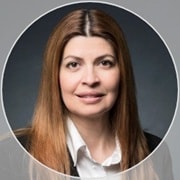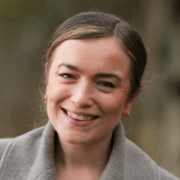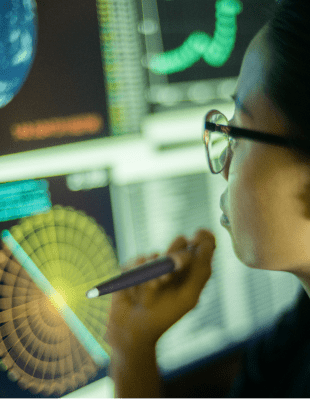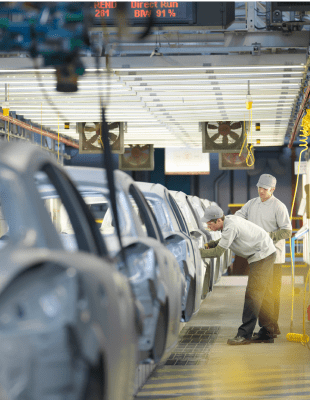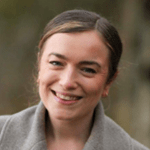Conversations for Change is a blog series that highlights exceptional people from diverse backgrounds, promoting inclusive discussions and positive global impact. Explore with us as we feature inspiring Arcadians, amplify their voices and contribute to a more inclusive and equitable future through thoughtful conversations.
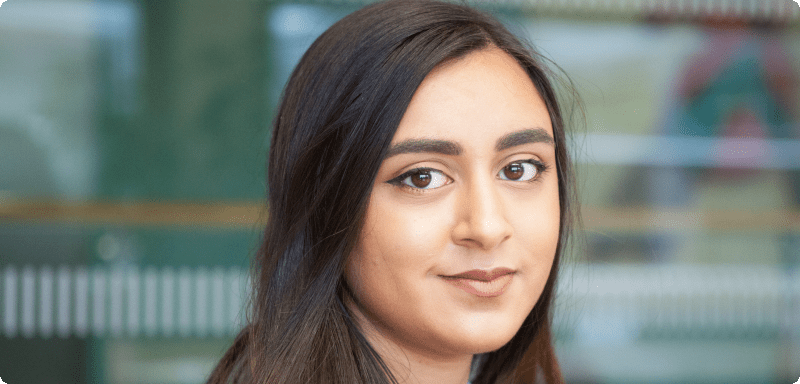
Aleesha Patel
Senior Management Consultant, UK
What advice would you give to individuals entering the AEC industry? What was the most impactful piece of advice you've received on your journey so far?
Diversity of thought and experience is so important, so try to look at differences as strengths rather than a weakness. One useful piece of advice I was given early on was always to communicate a solution alongside a problem. I had found several clashes within a BIM model I was working on. When I communicated this to my manager, he asked me what solutions I had thought of. I didn’t realize my task included thinking of solutions and so I didn’t know what to say. Often if you’ve already thought about solving a problem, whether it works or not, the person you’ve been sharing the issue with is a lot more receptive to working it out with you. It can also help to improve your reputation and visibility as you’re being proactive in finding a solution rather than transferring the issue to someone else. I think this can be especially useful for women who may be struggling with imposter syndrome in the AEC, making a significant impact with a small change.

How do you define Gender Equity and actively promote it in your work environment? Our industry?
Gender equity is a critical pre-requisite to gender equality. It is about giving everyone the resources they need to thrive, taking into account their different life experiences. As the UK Business Advisory Belonging & Wellbeing lead, I promote gender equity within my team through a focus on belonging. My ambition is to create an environment where all members of Business Advisory feel empowered and encouraged to bring their authentic selves to work. By fostering a sense of belonging, we are better equipped to identify & prevent bias, be more forthcoming about the challenges we face, and can work collaboratively to develop solutions.
What excites you about this year’s IWD theme of ‘Allyship & Inclusion’? Regarding gender equity, what change would you like to see in the next 10 years?
The emphasis on allyship really excites me and has been a focus of my Belonging & Wellbeing role for the last year. It’s important to acknowledge that anyone can demonstrate behaviors, actions and practices to support their colleagues in the workplace. It’s especially important for those in senior or privileged positions to understand what they can do to create a space where everyone feels comfortable, safe and valued.
I am a woman; however, I am also Indian – these two characteristics do not exist in isolation and therefore the resources I need to thrive may be different to those of a woman with different characteristics. I think Arcadis is making some great progress in this space. I take part in the Women of Colour forums which have been brilliant for sharing experiences and building a network, however I would like to see workplace inclusivity across all markets become more applicable to a blend of characteristics.

In a traditionally male-dominated industry, what specific obstacles or biases have you encountered, and how did you overcome them to succeed in your career? What lessons have you learned from these experiences?
There’s a few common obstacles and biases that I’ve encountered that recur more than most. People perceiving me as someone with less experience than my male colleagues (e.g. assuming I am more junior or not asking me about my experience), being treated with less respect than male colleagues (e.g. not shaking my hand or being spoken over), and imposter syndrome that started the moment my career began after being told by friends that I was only employed because I “tick two boxes”. When I encounter bias, I try to challenge it in a constructive way. People are often unaware of their biases and appreciate being exposed to information to make them reconsider their views. I’ve learned that when faced with bias, it’s best to keep a cool head and not make assumptions. My natural reaction would probably be to laugh it off out of awkwardness and then regret it later. Often asking clarifying questions such as “why do you say that?” can give you some space to consider any further response, and can also encourage the other person to re-consider what they said
What motivates you in your work? In your ideal world, what would best practice look like?
I’m a people person – I love to form positive relationships with people. Working with talented colleagues, supporting our clients, mentoring and supporting others are all things that give me a lot of energy at work. The more opportunities I get to have conversations and learn more about people and the world, the better!
One element of best practice in my ideal world would be leaving assumptions about the characteristics and experiences of others at the door. A lot of workplace hostility comes from assumptions, be they stereotypes, rumor based, or being complacent in getting the whole picture. If we all took the time to understand each other independently before drawing conclusions, we would create a safe space where everyone feels like they belong.

